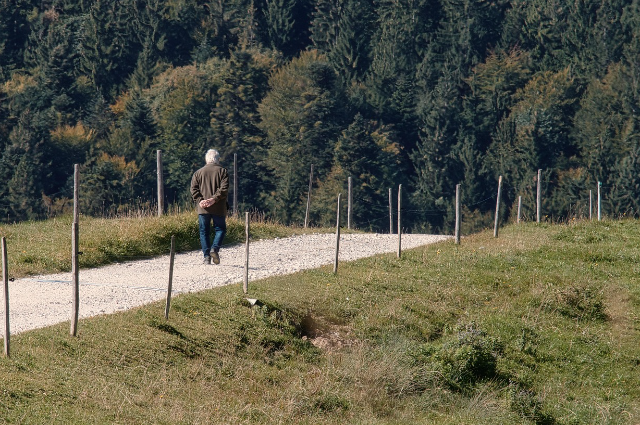
Image by Manfred Antranias Zimmer from Pixabay
The book 'On Not Being Someone Else: Tales of Our Unled Lives' authored by Andrew H. Miller, is a deep and poetic book about the lives we never lived. It actually talks about the “what ifs” that follow us quietly all our lives. Miller also explores how every choice we make, like a choice for a job, a marriage, or where we live, all close the door on other possible lives. He uses examples from the renowned writers like Robert Frost, Virginia Woolf, and Ian McEwan to show us how art helps us imagine those other versions of ourselves.
The book also asks why we are so fascinated by the paths that are not taken by us and how stories make us feel the weight of those missed chances. Miller doesn’t just talk about regret; he also finds beauty and meaning in wondering about what could actually have been. He explains that thinking about our “unlived lives” can make us understand ourselves better, even if it sometimes hurts.
Basically, his book teaches us that imagining the lives we didn’t live is actually a part of being human. It’s a reminder that while we can’t live every possible life, we can still find peace and wisdom in the one we have right now, by accepting that every choice also creates a shadow life we’ll never know.
Every decision we make closes a door to a thousand others. Each “yes” we say quietly erases a hundred “maybes.” We live one life, but shadow versions of us like the could-have-beens keep walking somewhere behind us, whispering what might have been. These are our unlived lives, and whether we admit it or not, they carry weight.
The Paths We Never Took
Think about the job you didn’t accept, the person you didn’t love, the country you didn’t move to. Each choice carved a path, but the paths you didn’t take didn’t disappear; they just became invisible. They exist as quiet ghosts inside your memory, showing up sometimes when you’re alone or unsure.
We tend to think regret only belongs to mistakes, but it also hides in what we never dared to do. The life we’re living feels heavy not only because of what we did, but because of what we left undone. That’s the strange sadness of being human. We can imagine infinite lives, but live only one.
The Paradox of Choice
In modern life, we’re told that freedom means having options. But too many choices can make us restless. When everything feels possible, every path we choose can feel slightly wrong, because it means losing all the others.
Philosopher Søren Kierkegaard called this the “dizziness of freedom”, to the anxiety of having to choose, knowing that each decision kills countless other possibilities. So, freedom isn’t light. It’s heavy. Every time we choose, we silently carry the weight of the lives we didn’t choose.
The Ghosts of Our Other Selves
Sometimes you catch yourself wondering: What if I had said yes? What if I had gone? In that moment, you meet another version of you. Which is a ghost-self. That self has lived a life you didn’t: maybe happier, maybe lonelier, maybe completely unrecognisable. We imagine that version living parallel to us, untouched by our mistakes, as if there’s a better “me” out there. But maybe that ghost is wondering about us, too. Like the self who stayed, the self who chose differently.
Our unlived lives aren’t enemies; they’re mirrors. They remind us of who we once wanted to be, and sometimes they push us to change.
Why the Unlived Hurts
It hurts because imagination has no limits, but reality does. We can think of a thousand paths, but walk only one. And the mind, being infinite, keeps mourning what the body can’t live. That’s why “what if” thoughts can ache like old wounds, because they’re tiny funerals for lives we never got to experience.
But maybe the pain of the unlived isn’t only loss. Maybe it’s proof that we dream deeply. That we cared enough to imagine more than one version of ourselves. The ache shows that we’re alive to possibility.
The Beauty of the Single Life
The quiet truth is: even though we didn’t live those other lives, traces of them live inside this one.
The person you didn’t become still shaped the person you did. Every dream you abandoned left a mark on the one you chased. Every door you didn’t open still taught you something about where you wanted to go. We don’t have to live every life to carry its meaning. Each path we didn’t take helped carve the one we walk now. The unlived lives stay with us, not as regrets, but as whispers that keep us humble. They keep reminding us that we’re both limited and infinite.
Making Peace with the Unlived
Maybe the goal isn’t to forget the other lives. It’s to accept that their weight is part of being human.
To live fully means to say yes to one thing and no to a thousand others and to carry that quietly, like invisible luggage. When you look back, don’t mourn the lives you didn’t live. Thank them. Because without them, you wouldn’t know how precious this one is. Each of us is a collection of lived and unlived lives, stitched together by choice, chance, and courage. And maybe that’s the beauty of it. We are both the life we have and all the lives we once imagined.
References:
